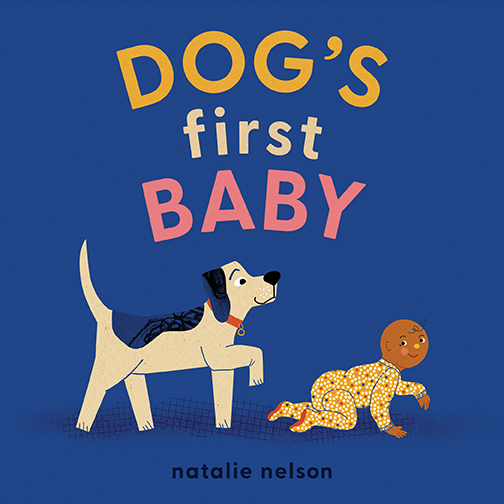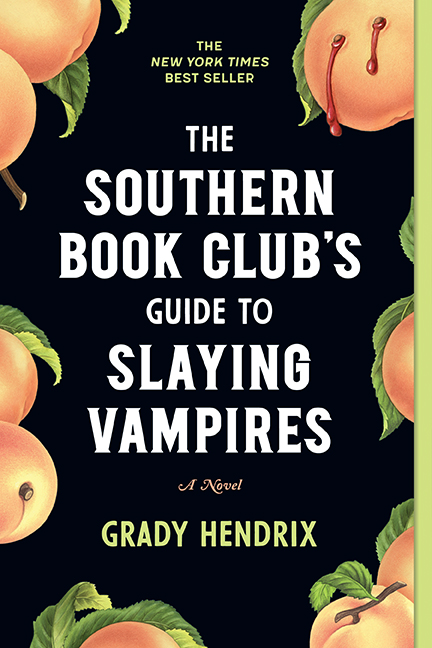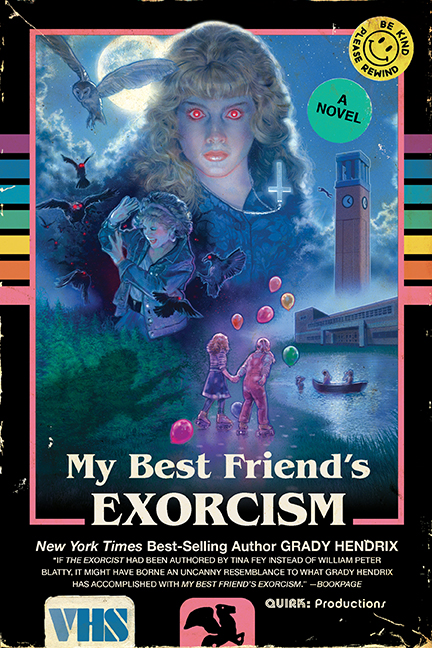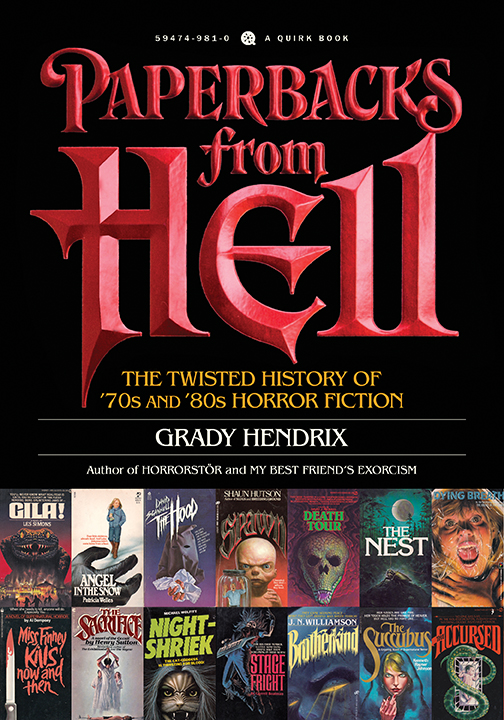Our Blog
10 Things Family Guy Taught Me About Books
Who says television can’t be educational? Or, okay, who says non-Sesame Street television can’t be educational? Case in point: Family Guy, though nominally just a cartoon about the antics of the hapless Peter Griffin and his family, is actually a treasure trove of insights into the world of literature.
Sure, you could probably figure some of this out by actually reading books, but this is the age of meta-culture! Here are the top ten lessons that Family Guy imparts.
1. Never Lie About Reading: In the second season two episode entitled ‘If I’m Dyin’ I’m Lyin’’ we see a classic case of Brian setting Peter straight:
We all know Peter loves two things: being a leader and bragging—but then again, so does everyone. It’s nice to feel important every once in a while, but it can be such a pain to actually do the work which earns you that much sought-after praise. What’s the solution? Say you read it in a book! There are so many books out there that chances are, you won’t get caught. Yet this scenario can backfire, as it did for Peter, and you end up looking foolish.
So Lesson #1 from Family Guy: don’t say you read a book when you didn’t. Just go out and read the darn thing!
2. Writing a Novel is Hard Work: One of the most quoted Family Guy scenes occurs in the season four episode ‘Brian the Bachelor.’
Seth MacFarlane has said he feels most comfortable voicing the role of Brian, and that the family’s beloved dog is also his favorite character. I think a lot of us share this sentiment because Brian is so relatable—he can’t get a girl, he’s a politically knowledgeable person in a sea of disinterest, and most important, he struggles as a writer. If anyone has tried writing a novel, they can sympathize. Your idea is great, and you have some of the story planned out, but when you put your hands on the keyboard your imagination just…refuses to cooperate! The fact is that many authors underestimate the planning and devotion needed to write a novel.
This Family Guy clip teaches us something else as well: whatever you do, don’t talk about your novel with a friend who’s going to mock you.
3. Book Clubs Can’t Be All Seriousness: ‘Breaking Out is Hard to Do’ was one of the most hilarious episodes in season 4. Lois is arrested after becoming a kleptomaniac and the family must learn to cope without her. Peter, her husband, is the one who has to take over her book club. In his typical fashion, Peter makes the event lighthearted, though slightly ridiculous:
There is, however, a lesson in Peter’s book club adventures—you can’t always be serious. For a book club to be enjoyable you need to have some deep, thought provoking discussion, but you must also be open to having a little bit of fun. After all, it’s not supposed to be a job!
4. Sometimes You Just Have to Quote a Good Book: Stewie is arguably the smartest member of the Griffin household (some would argue it’s Brian but come on… Stewie built a time machine!). Hence, he is a great candidate for teaching us about books. In the eighth season, there was an episode entitled ‘Extra Large Medium’ in which Stewie and Chris get lost in the woods.
When Chris asks Stewie why he wandered into the woods, he replied with a famous Thoreau quote: “I came to the woods because I wished to live deliberately, and see if I could not learn what it had to teach, and not, when I came to die, discover that I had not lived.”
Chris mistakenly thinks that Stewie thought of it himself, and after a mock audience poll, Stewie comments that most of American society also wouldn’t be able to figure out where the quote came from. Apart from making the audience feel guilty and under-read, however, the scene shows us just how cool it is to throw in a random book quote in the middle of conversation.
In fact, it doesn’t even have to be a quote. It could just be a great reference (e.g., if you’re meeting a friend and they’re late you can say ‘What happened? Did you accidentally go to Narnia?’ or when you receive something valuable you can refer to it as ‘My Preciousssss.’ in a Smeagol accent.) Take an example from Stewie Griffin—embrace literature!
5. Don’t Feel Pressured to Fit in With the ‘Cool’ Literary Crowd: The season 4 finale of Family Guy had a sad but hilarious cutaway depicting Brian in heaven. He is surrounded by a lot of his icons, including Ernest Hemingway, Van Gogh, and Kurt Cobain. They each discuss how they died and it turns out that the three great artists each killed themselves because they felt their work was misunderstood. Brian presents a contrast with his fairly normal death (for a dog, at least).
What’s the message here? Just loosen up a little! You should create to bring you closer to others, to express yourself, and to bring beauty into the world. Don’t feel pressured to be a brooding, moody artist. You’re doing a great thing, and it doesn’t have to make you miserable.
6. Don’t Belittle Others When You Have More Success With Books: The Bronte sisters cutaway in the ninth season episode called ‘New Kidney in Town’ shows an unfortunate truth to the audience—not everyone is equally talented.
But the great thing about it is that Charlotte and Emily were quite humble and kind toward their younger sister, even though they had the talent to brag. So a lesson to all you literary hotshots—you might be a great writer, but you have the opportunity to be a great writer and a great person if you remember to be respectful of others. Thanks for the lesson, Family Guy.
7. For Pete’s Sake, Pick Up a Book Every Once in a While!: In season ten Peter becomes fed up with people not reading anymore, and to compensate for this, he decides to make the reader do the work for one of the cutaways and read part of the screenplay. Genius!
The lesson here is quite obvious: though television is a lovely break when you’ve worked all day and feel completely drained, and Family Guy is witty and charming and all that other good stuff, make a conscious decision to read from time to time. Even if it’s a short story (or this blog post), your writing and critical thinking skills will thank you for it. Plus you never know, if you don’t read anything from now until the season twelve premiere, Seth MacFarlane might make you read an entire episode!
8. Be Mindful of Other Readers: In season 4 of Family Guy, Peter reveals the time he had his library card revoked in an episode called ‘The Cleveland-Loretta Quagmire.’ The reason Peter lost the most important item in his wallet is because he was reading while intoxicated. Obviously, this runs the risk of making you overly emotional and, well, that never leads to a good place.
But the real problem with Peter’s conduct was that he didn’t consider the feelings of the other readers in the library. Whenever you are in a public space intended for reading, it is important that you keep your voice down. Everyone loves the feeling of being immersed in a story and if you break their concentration by reading aloud or talking about ‘that super cool party last night’ you won’t be winning any friends in literary circles.
So read responsibly and read sober.
9. Don’t Judge a Book By Its Cover (Or By Who’s Reading It): One of the greatest feelings is being completely enthralled in the world of a book. This happened to Stewie Griffin in the season four episode ‘Peter’s Got Woods.’
Stewie is initially skeptical about The Da Vinci Code because Lois enjoyed the book. However, as he begins to flip through the pages, he discovers it isn’t just about Paris and museums, but murder! And we all know that’s Stewie’s favorite topic. He ends up staying all night reading the book and enjoys it immensely. We’ve all had those lovely nights—and really, they’re the most memorable ones. Curled up in bed with a cup of tea and a nice book. Nothing can be better. If the weather outside is awful and you feel nice and cozy, give yourself a couple of bonus points.
So if you think you’re too cool for a particular book, think again. Try reading a page or two and see how you like it. You might be pleasantly surprised at how relatable some of the material is. Or if it’s not, it might still be ridiculously entertaining. After all, 20 million people can be wrong but they can’t be bored.
10. Make Sure Your Children Are Reading: While this clip from season nine’s episode ‘Brian Writes a Bestseller’ is an obvious exaggeration, it points to an underlying truth. Namely, with the fast pace of today’s world, we’re forgetting about the value of picking up a book and forgetting the world.
It can be fun to multitask sometimes. It makes you feel important and productive. But you’re also losing your ability to concentrate on one goal and be truly present in it. And if you can’t get your loved ones to pick up a book too often, I implore of you to do one thing. At least make sure they never refer to it as the internet on a tree.
Posted by Anastasia Bizyayeva
Five Sci-Fi Concepts That I Wish Were Real (Despite the Terrible Consequences)
Science fiction often serves as a warning.
Perhaps a new technology is overreaching or dangerous or perhaps the rights of the individual are being stripped away by a powerful regime. In either case, science fiction muses on the idea, traveling the road of “what if?” In a world where we are already so plugged in, connecting even further could be disastrous, perhaps even destroying what it means to be fundamentally human.
Still, in other sci-fi works, it is the reach of technology outside of ourselves that might lead to our downfall.
Despite the dire consequences that these works discuss, I still can’t help wishing that some of these dangerous sci-fi concepts were real.
Posted by Jennifer Morell
At The Stroke of Midnight: YA Fairytale Twists
(Image via flickr)
People never really grow out of fairytales. I’m no exception: fairytale retellings have always intrigued me. Whether the source is a classic from Hans Christian Andersen, a tale from the Brothers Grimm, or another folktale handed down through the ages, there are so many interesting ways an author can change and re-vamp the story. It could be a new location, an unseen layer to the protagonist’s personality, a different time in history, anything.
A beloved tale transformed for a modern audience is exciting in its newness, but at their core, fairytales also possess some universal themes no matter the setting: a character coming of age, learning to trust their own experience, and encountering new dangers around every corner.
So it’s not surprising that YA fiction is such a perfect fit for fairytale adaptations. What makes YA retellings unique is their ability to make the fantastic elements familiar for modern readers — even if in a historical setting — while also incorporating some of the satisfyingly dark aspects from Andersen and Grimm. When the right elements come together, a YA retelling is just as spellbinding as that very first picture book.
But what are the elements that make for a great YA fairytale retelling?
Posted by Laura Crockett
The Romantics: The Avengers of Classic Literature
The Romantics were the superheroes of 18th century literature. These poets wrote about nature, emotions, and personal themes when the current trends favored Enlightenment ideals (scientific thought, skepticism, and intellect).
This group of men used their collective power of colloquial language to create poetry that emphasized intuition and the pastoral. Blake, Wordsworth, Coleridge, Byron, Shelley, and Keats banded together to form the Romantics: the Avengers of classic literature.
Posted by Maria Vicente
Lose the Force: Six Alternative Religions from the Star Wars Universe
A Teth B’omarr monastery. How’s that for hokey, Han?
Despite Vader’s “sad devotion to that ancient Jedi religion,” casual Star Wars fans might think that the Evil Empire crushed all religions from existence throughout that galaxy far, far away. But we find your lack of faith disturbing. There are many races, many worlds and many orders, cults and ways found throughout the official Star Wars cannon. Here’s an intro to a handful of those who follow the Ways-of-the-Not-Jedi.
Posted by Shane Mooney
Our Favorite Mythical Creatures & Where You Can Find Them
Humans are interesting animals. Creativity seeps through our veins. I’m not entirely sure who came up with the following creatures, but it must have taken some incredibly unique (and perhaps problematic) imagination to bring these things into being.
A horse with a horn. A woman’s body with a fish tail. A bird that turns to ash, but never dies.
Mythical creatures are fascinating, so its no wonder they inhabit the many fantasy stories we all love and cherish. Here are five of our favorites.
Posted by Maria Vicente




